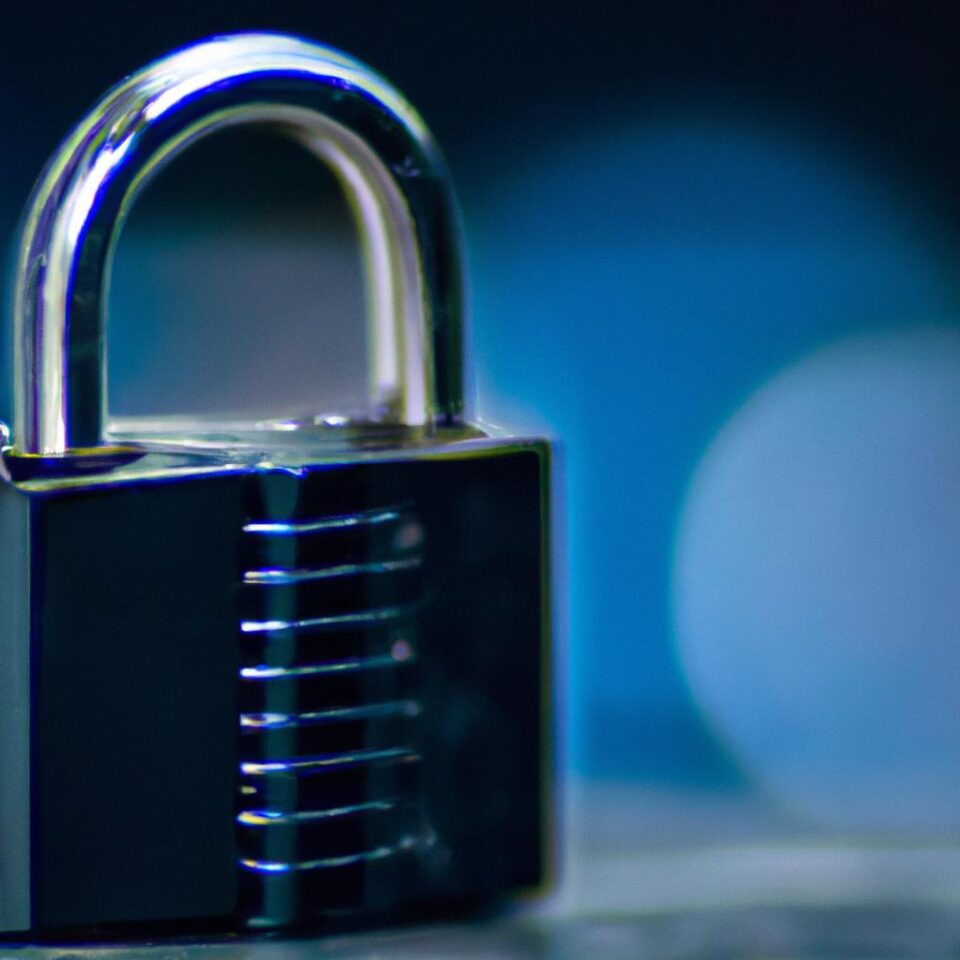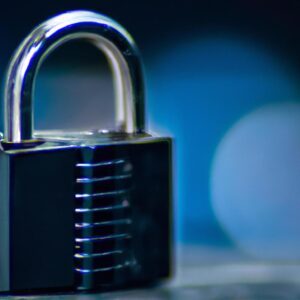Data Privacy: Safeguarding Your Personal Information Online
In today’s digital age, more and more of our personal information is stored online. From banking details to social media accounts, our data has never been so vulnerable. This makes it essential to take the necessary steps to protect your personal information online. In this guide, we will discuss the importance of data privacy, the potential risks of online data sharing, and how to develop a plan to safeguard your personal information.
Secure Your Data
Staying secure online means taking a few extra steps to protect your information. When setting up usernames, passwords and accounts, it’s important to be on top of your security. Here are some tips to make sure your data remains safe:
- Pick tough and unique passwords that are difficult to crack. Try using phrases, characters and even emojis. Never use personal information like your name or address.
- Create different passwords for each account you use and never share them with anyone.
- Make sure all your usernames are different and difficult to guess. Also avoid using the same username and password for multiple accounts.
- Enable two-factor authentication wherever possible, which adds an extra layer of protection to your accounts.
- When connecting to a network, make sure it is encrypted by looking for ‘https’ or ‘SSL’ at the start of the web address.
Remember, keeping your data secure is important and being smart about it will help keep it private.
Utilizing Online Privacy Tools
We’ve all heard the horror stories about data breaches, identity theft, and other cybercrimes. It’s more important than ever to secure our personal information when online.
Thanks to a variety of privacy tools, it’s easier than ever to take steps to protect yourself. Let’s look at a few of the easy-to-use options available:
- Private Browsing – Many browsers (including Chrome and Firefox) have a private browsing mode that prevents the sites you visit from being logged in your history. This also prevents cookies from being saved to your computer, which can be used to track your activity online.
- Delete Tracking Cookies – In addition to using the private browsing mode, make sure to delete any tracking cookies on your computer. These are small files that are downloaded to your machine when you visit websites, and they can be used to monitor your activity across the web.
By utilizing these online privacy tools, you can start protecting your personal information and making sure you’re not leaving a digital trail. It’s just one of many steps you can take to safeguard your data.
Anti-Virus Software and Firewalls
You can help keep your computer safe from malicious software and potential threats by using anti-virus software and firewalls. Anti-virus software helps protect your computer from viruses or malware that may be downloaded from the internet, transferred via email, or stored on a USB drive. The software runs regular updates and scans for any potential threats. A firewall is a barrier that acts as a security measure and helps protect your computer from unauthorized access.
It’s important to keep your anti-virus software and firewall up-to-date. To do this, you can either set your software to run updates automatically, or set reminders to manually check for updates. Often times, operating systems will prompt users when it’s time to update. It’s highly recommended to turn on automatic updates for your computer’s operating system, software, and applications.
By keeping your anti-virus software and firewalls up-to-date, you can help protect your computer and personal information from malicious software, viruses, and other online threats. Taking these precautions can give you more peace of mind when browsing online.
Protect Your Social Network Accounts
Social media accounts can be a great way to stay connected with friends, family, and networks, but it is important to ensure that you are taking the necessary steps to protect your privacy. It is essential to know how to limit access to your accounts, keep your profile settings private, and understand the terms of service. Here are some key tips to help keep your accounts secure:
- Choose strong passwords and if possible, enable two-factor authentication.
- Be aware of who can see your posts and adjust your privacy settings accordingly.
- Be cautious when clicking on links from strangers or unexpected messages.
- Keep personal information off of your profile.
- Regularly update your accounts with the latest updates and patches.
- Review your account security options and settings regularly.
- Learn about the terms of service of each social media platform.
Keeping yourself informed and taking the necessary precautions can help ensure that your personal information remains safe while using social media networks.
Understand Online Shopping Security
When shopping online, it’s important to make sure the retailer’s website is secure. A secure website should have a padlock icon in the address bar and the web address should start with “https://”. If you don’t see these signs, it’s best not to shop on that website as it could put your personal information at risk.
You should also make sure you use credit card protection software when entering credit card information. This software will help keep your payment details safe and secure. It’s also important to understand the policies of the store when it comes to credit cards. Make sure you know any fees, charges and returns policies related to the product before completing a purchase.
Finally, it’s important to be aware of chargeback policies. Chargeback policies allow customers to dispute a transaction if the product or service does not meet expectations. It’s important to check the store’s chargeback policy before completing a purchase in case something should go wrong.
Additional Measures
The digital world can be a scary place, but there are still measures you can take to keep your data safe. Consider using a secure email provider, like ProtonMail, to encrypt your emails. You should also only download attachments from known sources and verify file checksums before doing so. Additionally, scams are becoming increasingly prevalent online, so it is important to understand how to spot them. Look out for emails asking for financial information, offers that seem too good to be true, web pages that appear ‘off’ in some way, or other attempts to steal your personal information.
Finally, make sure to always create strong passwords that are difficult to guess, change your passwords regularly, and never give out your passwords or other sensitive information to anyone. Doing so can help protect your data and privacy when online.
Data privacy is an important aspect of staying safe online. With so much of our personal information available online, it’s essential to create and stick to a plan to safeguard our data. It requires being aware of potential risks, utilizing the available security tools, understanding online shopping safety measures, and having a basic knowledge of software and firewalls.
To remain vigilant of potential data breaches, users should set strong passwords and usernames, limit access to personal accounts, and take advantage of two-factor authentication where available. Private browsers are also recommended as they block tracking cookies and delete browsing history when necessary. Meanwhile, anti-virus software and firewalls are effective in keeping our computer systems secure, while also updating our operating systems and software regularly.
It’s also wise to choose secure email providers and only open attachments from trusted sources, as well as recognizing and avoiding scams. Lastly, it’s essential to understand the terms of service with online retailers and be aware of credit card protection policies to ensure we’re shopping securely.
By following these steps, we can have confidence that our personal information is being protected. The key takeaway is to create a safety plan and remain aware of potential threats, and when in doubt, seek out the resources available to provide more in-depth advice and guidance.
Resources
When it comes to safeguarding your personal information online, it can be difficult to stay up to date on the latest security measures and best practices. Luckily, there are plenty of resources available to help you navigate this topic.
Check out the following websites for more reliable information and advice to keep your data secure:
- U.S. Department of Homeland Security: www.dhs.gov
- National Cyber Security Alliance: www.staysafeonline.org
- Consumer Reports: www.consumerreports.org
- Privacy Rights Clearinghouse: www.privacyrights.org
These organizations provide helpful tips and advice about protecting your personal data, as well as staying informed about changes in data privacy laws. Additionally, many of them also offer cybersecurity and identity theft education and prevention services.

